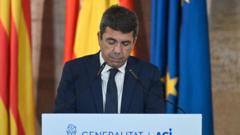What Drives Trump's Oedipal Fury?

Published: 2025-11-03 05:01:29 | Category: politics
Recent statements from Mr Donald Trump regarding potential military action against terrorist groups in Nigeria have raised significant concerns and questions about the United States' role in international conflicts. The former president tweeted his intentions to prepare the Department of War for possible action, suggesting that any intervention would be "fast, vicious, and sweet." This rhetoric has prompted reactions from various quarters, particularly among Nigerian citizens and global observers who are wary of foreign military involvement in their internal affairs.
Last updated: 02 November 2023 (BST)
What’s happening now
Mr Trump’s tweet has sparked a flurry of discussions regarding the situation in Nigeria, particularly concerning the violence perpetrated by terrorist groups against Christians. Boko Haram and ISWAP (Islamic State West Africa Province) have been implicated in numerous attacks, leading to considerable loss of life and displacement. The international community is observing the situation closely, especially with the backdrop of Trump's history of military rhetoric. His comments appear to signal a willingness to engage militarily, a move that many fear could complicate an already volatile situation.
Key takeaways
- Trump's statements reflect a potential shift in U.S. foreign policy regarding Nigeria.
- Concerns about the impact of military intervention on local populations are paramount.
- The humanitarian crisis in Nigeria has been exacerbated by terrorist activities targeting Christians.
Timeline: how we got here
The situation in Nigeria has been precarious for years, with various terrorist groups operating in the region. Key milestones include:
- 2009: Boko Haram emerges, launching attacks primarily in Northern Nigeria.
- 2015: ISWAP forms as a splinter group of Boko Haram, intensifying violence.
- 2020: Increased international attention on the humanitarian crisis in Nigeria.
- October 2023: Trump tweets about potential military action, stirring controversy.
What’s new vs what’s known
New today/this week
Trump's recent comments signal a potential U.S. military engagement in Nigeria, which has not been a part of any formal strategy from the Biden administration. The tweet suggests a unilateral approach that may not align with current diplomatic efforts.
What was already established
For years, Nigeria has faced escalating violence from terrorist organisations, particularly in the northern regions. The Nigerian government has struggled to combat these groups effectively, leading to calls for international assistance. Human rights organisations have documented the impacts on civilian populations, particularly Christians, who have been disproportionately targeted.
Impact for the UK
Consumers and households
The potential for military action could have indirect repercussions in the UK, especially concerning the flow of refugees and the need for humanitarian assistance. British citizens might also be affected by shifts in international relations and foreign aid policies linked to Nigeria.
Businesses and jobs
UK businesses operating in Nigeria could face increased risks if military intervention escalates tensions. Supply chains may be disrupted, and employment opportunities could diminish in conflict-affected areas.
Policy and regulation
The UK government may need to reassess its stance on military intervention and humanitarian support in Nigeria in light of the U.S. position. There could be new discussions in Parliament regarding foreign aid and military involvement.
Numbers that matter
- Over 30,000 people have been killed by Boko Haram and ISWAP since 2009.
- Approximately 2.3 million people are internally displaced due to the ongoing violence.
- Nigeria has one of the highest rates of religiously motivated violence in the world, with Christians being disproportionately affected.
Definitions and jargon buster
- Boko Haram: An Islamist militant group based in northeastern Nigeria, known for its violent insurgency.
- ISWAP: Islamic State West Africa Province, a faction of Boko Haram that has pledged allegiance to the Islamic State.
How to think about the next steps
Near term (0–4 weeks)
Watch for any official statements from the Biden administration regarding military engagement in Nigeria. Monitoring the response from the Nigerian government and local communities will also be vital.
Medium term (1–6 months)
Anticipate potential shifts in U.S. foreign policy toward Nigeria, especially regarding military support or humanitarian aid. The situation may evolve based on local and international responses to any actions taken.
Signals to watch
- Official announcements from the U.S. government regarding military actions.
- Statements from the Nigerian government on foreign intervention.
- Reports from humanitarian organisations on the ground situation.
Practical guidance
Do
- Stay informed through credible news sources about developments in Nigeria.
- Support humanitarian efforts aimed at assisting those affected by violence in Nigeria.
Don’t
- Assume that military intervention will solve the underlying issues of violence.
- Ignore the voices of local communities affected by the conflict.
Checklist
- Review credible news sources for updates on Nigeria.
- Consider supporting NGOs working in conflict resolution and humanitarian assistance.
- Engage with discussions on international policy regarding Nigeria.
Risks, caveats, and uncertainties
There are significant uncertainties regarding the effectiveness of military intervention in Nigeria. Past interventions have often led to unintended consequences, including civilian casualties and further destabilisation. Additionally, the complexity of the conflict requires careful consideration of local dynamics, and there is a risk that foreign intervention could exacerbate existing tensions rather than resolve them.
Bottom line
Mr Trump's recent declaration has reignited discussions about the U.S. role in international conflicts, particularly in Nigeria. As the situation unfolds, it is crucial for both policymakers and citizens to consider the potential implications of military action and to focus on supporting humanitarian initiatives that address the root causes of violence.
FAQs
What is Mr Trump's stance on military intervention in Nigeria?
Mr Trump has indicated a readiness for military action against terrorist groups in Nigeria, calling for preparations within the Department of War.
How has terrorism impacted Christians in Nigeria?
Terrorism, particularly from groups like Boko Haram and ISWAP, has resulted in significant violence against Christians, leading to loss of life and displacement.
What should the UK consider regarding the situation in Nigeria?
The UK should monitor the potential implications of U.S. military action and assess its own position on humanitarian aid and support for Nigeria.



